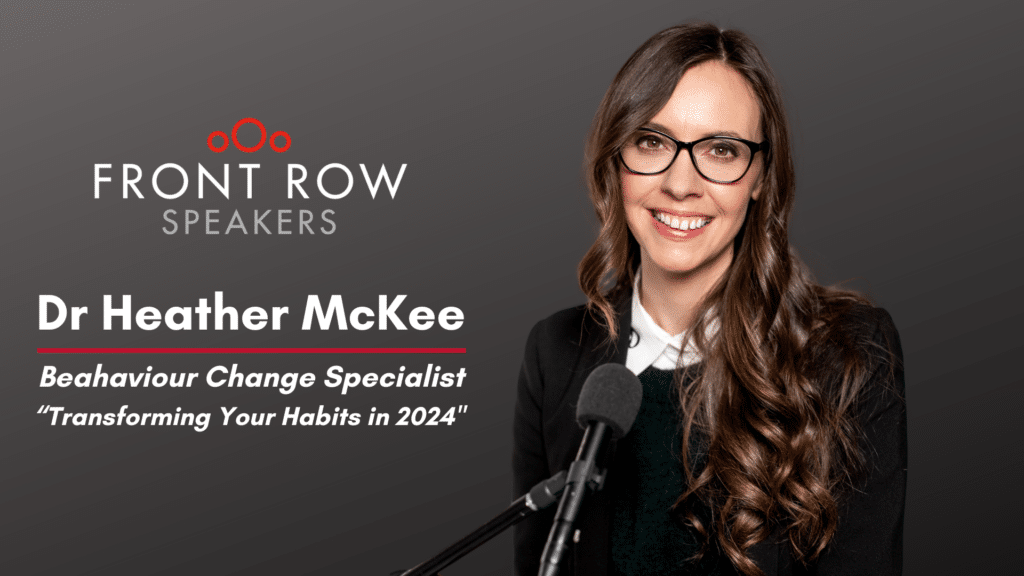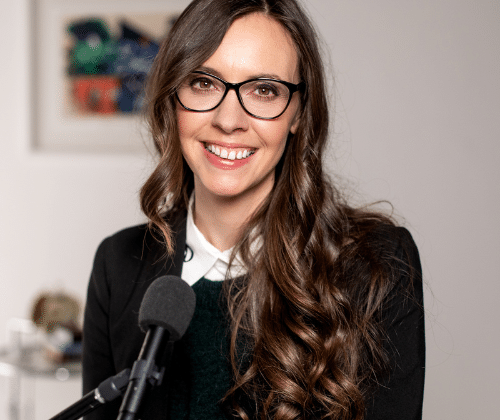Sticky Habits to Transform Your Workforce By Dr Heather McKee

5 Questions To Ask Yourself To Build Sticky Habits For 2024
You’ve tried various initiatives like lunchtime yoga sessions, fruit bowls, wellbeing days, and step count challenges, but they haven’t significantly improved your employees’ wellbeing. Many of your people are still depleted, demotivated, and on the verge of burnout. It’s frustrating and feels like a waste of resources.
As a behavior change specialist, I believe that simply providing information won’t lead to overnight transformations. We already know that we need to eat more vegetables, exercise more, sleep better, and manage stress. These are essential for health. However, if your employees struggle to incorporate these habits into their busy work lives, they won’t experience the benefits of increased energy and engagement.
What your people need is a method for implementing these habits in their daily lives, making them fit within the context of their work. This is the key to making these habits sustainable and reaping the benefits of improved sleep, focus, mood, reduced stress, and long-term health.
Over 40 years of research in behavioural science have shown that it’s not just information but implementation that creates lasting change.
So, how can you and your employees go from good intentions to lasting actions? That’s where the science of habits comes in. Creating a routine that lasts throughout 2024 (and beyond) can be challenging. Ultimately we need to focus on the ‘how to” rather than the ingredients alone. What I mean by this is the method in the recipe for health. Here are 5 evidence-based insights to kickstart this process for you:
- Get Personal: When setting New Year’s resolutions, it’s common to impose goals on ourselves based on external pressures. However, to create lasting changes, it’s important to uncover the personal motivations behind adopting healthier habits. Ask yourself, “Why is it important for me to make this change?” Consider how you want to feel this year and connect your habits to those desired feelings. We need to be able to see what a positive habit contributes to our life in order to have the motivation to stick with it. If its not obvious what it is contributing then maybe it isn’t the right time to be making this change. For example, eating more vegetables not only makes you feel good but it sets a positive example for your children, taking a lunchtime walk boosts your energy and focus for work, and practicing a short meditation helps you find calm with your family. By aligning your habits with your personal values and aspirations, they become more sustainable.
- Choose Enjoyment: Research shows, healthy habits are more likely to stick when they bring joy and satisfaction. Engage in activities that you genuinely enjoy, whether it’s dancing in your kitchen, playing with your kids in the park, savoring the taste of fresh fruits, or listening to your favorite music or podcasts while exercising or preparing meals. By finding healthy habits your enjoy or layering joy into your healthy habits you’ll be more inclined to continue them in the long run. Ask yourself, “Which healthy habits do I genuinely enjoy?”. Start with these.
- Start Small: Contrary to popular belief, big goals don’t always lead to big changes. Attempting to transform your entire lifestyle overnight can be overwhelming and unsustainable. Instead, focus on making one small change at a time and consistently practicing it. For example, plan a healthy snack at 4 pm to avoid the afternoon slump or aim to increase your daily step count by 100. Celebrate each small achievement, and gradually build upon them over time. Research shows that smaller, simpler actions are more likely to become lasting habits. Ask yourself, “What one small change can I commit to for the next week?”
- Anchor in Time and Place: Making your habits specific to your daily life increases the likelihood of them becoming ingrained routines. Choose a consistent time and place for each habit. For instance, instead of aiming to “exercise more,” specify, “On Mondays and Wednesdays, I will attend an online weights/dance/Pilates class at 7 am.” Similarly, rather than simply planning to “eat healthier,” define, “Every Sunday at 3 pm, I will spend 60 minutes planning my meals, doing my grocery shopping, or preparing healthy snacks for the week ahead.” By anchoring your habits in a particular time and place, you create a clear structure that supports their integration into your daily routine. Ask yourself, “When and where will I perform my one small change this week?” dsgsgsfrerfer ffrfr
- Celebrate Milestones: Building lasting healthy habits can be challenging, so it’s essential to acknowledge and celebrate your successes along the way. Research has shown that celebrating achievements boosts motivation (via the positive dopamine response) and reinforces positive behaviour. Take time to recognize and reward yourself for sticking to your habits, How do you celebrate? In whatever way helps you feel good about the small change you’ve just made. It could be to sing your favourite song, visualise yourself scoring a goal, do a drum roll on your desk or say in your head or aloud “I am creating healthy habits that make me feel good”. The key is that you experiment to find the celebration that works for you and then do it immediately after your new healthy habit. By celebrating your success, you create a positive feedback loop in your brain that reinforces this is something good to do and that will fast track your healthy habit success. Ask yourself: “How can I celebrate/feel good about my new habit immediately after I’ve done it?”
So often when it comes to change we focus on goals and outcomes and ignore the importance of the process. Having a method to create and sustain change is what leads to lasting change. These questions will kickstart you in that journey. Ultimately if you can change your method change can happen.And that is exactly what I empower your people with through my sticky habits method. You can read more about my habit builder series, workshops and keynotes here https://frontrowspeakers.com/speakers/dr-heather-mckee-lifestyle-behaviour-change-specialist-keynote-speaker/
To book Dr Heather McKee for your event, contact Front Row Speakers on +353 1 485 3991 or email welcome@frontrowspeakers.com
Recent Posts
- Sticky Habits to Transform Your Workforce By Dr Heather McKee
- Front Row Speaker Caroline Currid Begins New Role with Munster
- Front Row Speaker Amy Morin’s 13 Exercises to Mentally Strengthen your Children
- Front Row Speakers’ David Meerman Scott on How You Can Turn Customers into Fans
- Front Row Speaker Eric Partaker on Why Your Lack of Respect is Hurting You



